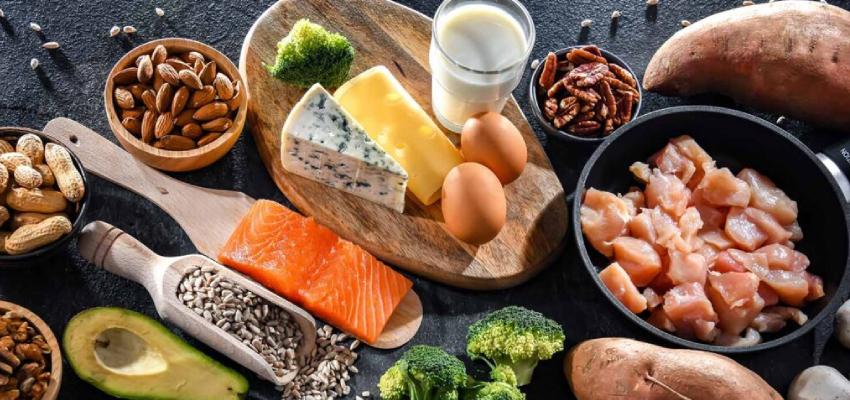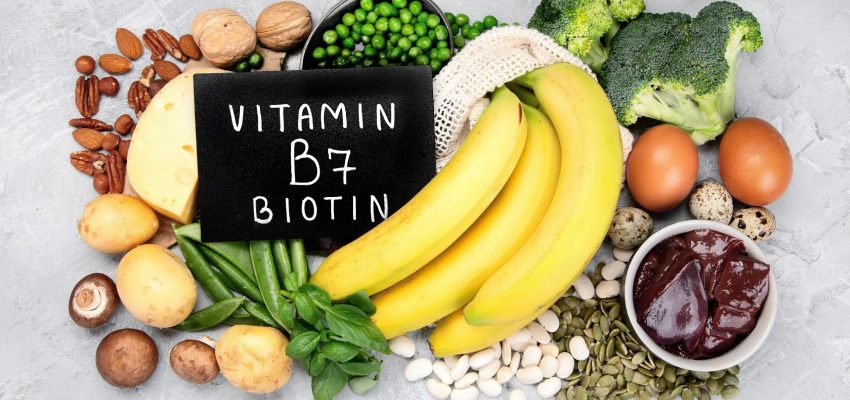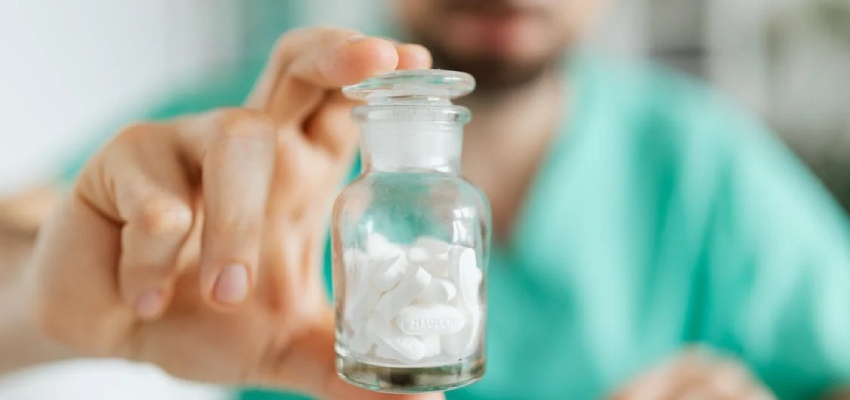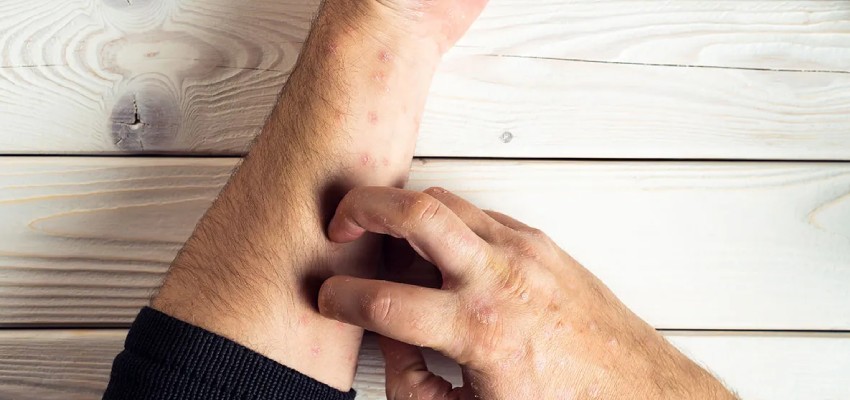One of the most important micronutrients for maintaining a healthy neurological system and producing energy is biotin, often known as vitamin B7.
Biotin is a supplement and dietary component that is well-known for its ability to prevent hair loss and strengthen nails and hair.
Although there is a need for more study, preliminary findings suggest that biotin may alleviate peripheral neuropathy symptoms and aid diabetics in managing their blood sugar levels.
Although biotin is usually safe to use, it may interact with some medications and lab tests, so it’s best to see your doctor before taking the vitamin.
Why Biotin Is Beneficial?
Many foods, both plant and animal based, contain biotin. Some examples are eggs, meat, nuts, and seeds.

The large intestine bacteria, including Bacteroides fragilis, Fusobacterium varium, Prevotella copri, and Campylobacter coli, create biotin naturally, in addition to what we eat.
As a result, there has never been a case of a severe biotin deficit in otherwise healthy individuals who eat a balanced diet.
Thirty micrograms (mcg) of biotin daily is the AI for adults, and thirty-five mcg for nursing mothers. Research on Western populations has shown that the average person consumes more biotin than is necessary for optimal health, with daily intakes ranging from 35 to 70 mcg.1
Because of this, taking a biotin supplement is unnecessary for the majority of individuals. Nevertheless, certain people could benefit from taking biotin pills.
Have a look at estrogen rich foods.
Reliable Biotin Sources
Most people easily fulfil their daily biotin needs by following balanced diets, as biotin is rich in various plant and animal sources. Some of the healthiest foods that include biotin are:

- Third ounces of beef liver has 30.8 milligrammes, which is equivalent to 103% of the DV.
- The egg: Thirty-three percent of the daily value (mcg) is included in only one entire egg.
- Fish: salmon 5 milligrammes per three ounces, which is equal to seventeen percent of the daily value
- Pork: An amount equivalent to 13% of the daily value (3.8 mcg/ 3 oz)
- The sweet potato: The cooked cup has 2.4 mcg, which is equivalent to 16% of the daily value.
- Pomegranate seeds: One quarter cup contains 2.6 milligrammes, which is equivalent to 9% of the daily value.
- The nut: 15% of the daily value, or 1.5 mcg per half cup
- Spinach, broccoli, bananas, cheese, oats, yoghurt, and tuna are a few foods that contain biotin, albeit in lesser quantities.
Get information about – Mutton liver benefits
Biotin Side Effects
Many people use biotin capsules or pills for their hair. But before you use biotin pills, it’s best to see your physician.

Some of the potential negative effects of biotin are listed below.
Explore more about – Best food for liver.
Possible acne trigger
Acne is the one skin condition that no one loves. When used in large doses, biotin can have serious adverse effects, the most serious of which being the possibility of cystic acne.
Sebum production is increased by biotin, leading to a rise in the accumulation of dirt, oil, and filth on the face. Biotin use has been associated with an increased risk of cystic acne, particularly around the jawline and chin.
Once you discontinue using biotin, the acne will eventually go gone. But it might leave unsightly scars and markings, and no one likes them.
- Has the potential to induce problems in a pregnant woman: Do not take biotin if you are pregnant. It is advised that you see your physician if you are already using biotin pills or biotin for hair growth. The risk of miscarriage may be increased by taking a high amount of biotin.
- Alergy: Biotin capsules has the potential to cause allergic responses in certain individuals. Because our bodies are unique, the way biotin affects us also differs.
You can also look at vitamin d foods for vegetarians.
Some examples of possible allergic responses include –
Nausea – A feeling of constriction in the throat – Pain in the chest – Rashes that are itchy – Facial and throat swelling. Get medical help right away if you experience any of these side effects while using biotin pills.

- Nausea: Many individuals experience nausea when they first start taking biotin tablets. Because nausea usually goes away on its own after a while, this isn’t really reason for alarm.
- Medication interactions: Research shows that anti-seizure and cholesterol-lowering drugs interact negatively with biotin. The effectiveness of these medications can be compromised by taking an excessive amount of biotin. For diabetics, it may potentially cause complications.
Here is gluten free oats.
What need to assist is consulting with your physician prior to beginning to use biotin pills.
- Constipation: Those who consume large amounts of biotin frequently experience gastrointestinal side effects including cramping and diarrhoea. Stop taking biotin pills and consult your doctor right away if you have any gastrointestinal side effects, such as diarrhoea or cramping, while using biotin supplements.
- Frequent urination: You could find that you have to urinate more frequently after taking a high dose of biotin. An increase in perspiration is another side effect of taking more biotin, in addition to increased urination.
Consider reading –
- Best delay spray in India
- Fiber rich food in India
- Sos meaning in medical prescription
- Labd meaning in prescription
- Best anti itch medicine tablet